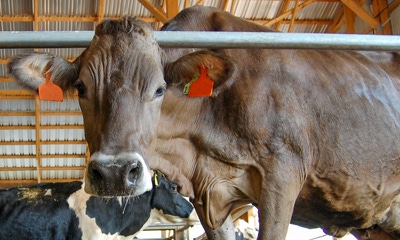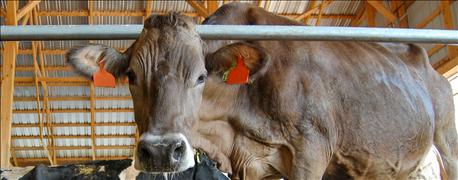July 22, 2016

I’m 62 and have a 320-acre crop and dairy farm, with low milk prices, a bad back and no children who want to farm. Am I better off selling the herd and machinery and renting out the farm, or selling it all and moving to town? My wife prefers country living. Any thoughts?
Mike Evanish urges to go slow, develop a plan.
Sorry to hear of your bad back. It’s always sad to see any family business come to an end due to a lack of interest.

Much more information is needed before any credible advice can be given. I always start with the farm’s balance sheet, listing assets, debts and equity. Are your farm’s assets up to date, or have they been neglected? How much debt is your farm carrying? Is the farm in a “hot” real estate market? How does the value of all farm assets compare to its liabilities?
All these questions must be answered before selling anything. So here’s your “To Do” list:
1. Prep a realistic up-to-date fair market value balance sheet. Is all debt listed?
2. Dig back through your records to determine your “bare bones” household operating costs – that won’t be good enough later on. The farm provides many benefits that won’t be there in retirement. So, I suggest you double that household cost.
3. Contact Social Security to see what your monthly benefit will be. While not enough to live on by itself, Social Security certainly will help.
4. Will it cash flow?
For most individuals, it’s necessary to plan at least five years out for retirement. That means that five years before retirement all of the above and more must be answered.
We only get one shot at retirement, and sadly, a retirement decision is too often made based on emotion, not facts. After a career of helping farmers transition from work to retirement, I know there’s only one good answer – plan for it! This’s what MSC Business Services has been doing for Farm Bureau members for nearly 60 years and will continue doing.
Dale Johnson agrees and adds “Listen to your wife.”
You’re likely to be around many more years. You need time to carefully analyze and avoid a wrong decision.
Renting the farm out for a few years buys you time. There are young dairy farmers looking for opportunities to farm. Check out state Farm Link programs and farm management consultants. I’ve seen several young farmers get started by borrowing money to buy a herd of cows and renting farms. Some end up buying those farms.
Your 320 acres can still be a viable dairy if your facilities and equipment are in reasonable condition and can meet nutrient management regulations. Even if they’re somewhat deteriorated, low-cost grazing systems can be established to make it economical. With today’s milk prices, you may need to charge lower rental rates.
Even though your children don’t want to farm, ask them what they’d like to see done. Above all, listen to your wife. If she wants to stay, you don’t have a lot of choice in the matter!
George Mueller suggests holding that real estate.
Two things grabbed my attention: At 62, you’re still young and have much opportunity for a second career. Since your wife enjoys the country and you have roots and many area friends, staying on or near the farm would be wise.
How to disperse your assets depends on demand for farmland in your area, your financial position and tax consequences. Perhaps, in planning for your advancing years, you would like a new, low-maintenance, ranch-style home all on one floor. This might require selling the farm.
Perhaps, like Mary Lue and I, you’ve accumulated a home full of “stuff.” Your plan (like ours) may be to build wheelchair ramps, live on the first floor and let the children disperse your historic accumulation.
As Mike alluded, be sure to consult with a tax accountant who understands farming. There’s bound to be considerable capital gains taxes that can be moderated.
Holding on to the real estate until your passing might help your heirs with a stepped-up “tax basis.” That avoids some capital gains taxes. Selling over a period of years might also help.
Glenn Rogers urges cluing employees in.
You’ve worked the farm, lived there, raised your children there, and may have invested your retirement there. To change all of it even in six months would be difficult in so many ways.
To start, put all the information down on paper, get input from your loved ones and evaluate the pros and cons of each avenue. The huge tax impact has already been mentioned. Visit with your lenders to see what options and payouts might be, and with close trusted advisers to get their insights.
Once you get close to a decision, talk to your employees about your leanings. Longtime employees may have some excellent thoughts, and should be given plenty of time to make an emotional, financial and physical decision as well. They’ve helped you build your success and deserve the same respect you want.
Any new adventure in town, or across the country, tends to grow old over time as we settle into a routine. Write down all the pros and cons, research the alternatives, and make the best decision for you and your family.
Editor’s note: Read Roger’s critical tax and sale advice.

You May Also Like




